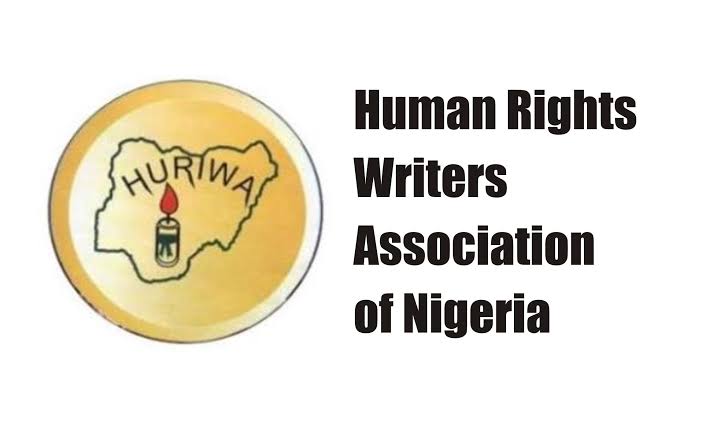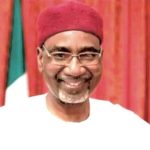The Human Rights Writers Association of Nigeria (HURIWA) has commended the Nigerian National Petroleum Company Limited (NNPCL) for its unprecedented display of transparency and accountability in releasing its 2023 Audited Financial Statement (AFS).
HURIWA stated that the NNPCL’s declaration of a net profit of N3.3 trillion, alongside the announcement of a N2.1 trillion dividend, marks a significant milestone in the company’s history and represents a clear departure from the opacity and inefficiency that once characterized the former Nigerian National Petroleum Corporation (NNPC).
In a statement released on Sunday, HURIWA’s National Coordinator, Comrade Emmanuel Onwubiko, lauded the management of NNPCL under the leadership of the Group Managing Director, Mele Kyari, noting that the company’s impressive financial performance and commitment to openness signal a new era in Nigeria’s petroleum industry.
According to HURIWA, the reborn NNPCL has demonstrated a commitment to upholding the principles of excellent corporate governance, a stark contrast to the previous practices that plagued the then-NNPC.
The human rights group emphasized that NNPCL’s release of its audited financials, which showed a 28% increase in profit from the previous year, is a testament to the company’s resolve to operate with integrity and transparency.
“This is a remarkable achievement that reflects the positive changes implemented since NNPC transitioned to NNPCL. The company’s ability to post such impressive returns amidst the challenges in the operational and economic environment is commendable,” HURIWA stated.
HURIWA emphasized that Mele Kyari, who took on the position of Group Managing Director in 2019, is directly responsible for the NNPCL’s advancement in financial transparency.
The organization pointed out that Kyari’s tenure has been marked by a series of transformative reforms aimed at improving the efficiency and profitability of NNPCL.
“Since taking office, Mele Kyari has demonstrated an unwavering commitment to repositioning NNPCL as a transparent and accountable entity.
His leadership has ushered in a new era of corporate responsibility, which has now culminated in the remarkable financial performance recorded in 2023,” HURIWA noted.
The human rights group also praised the NNPCL Board for its role in driving the company’s success.
The approval of a final dividend of N2.1 trillion by the company’s shareholders, as announced by NNPCL Board Chairman, Chief Pius Akinyelure, was described by HURIWA as a reflection of the confidence reposed in the company’s management.
“The decision to declare such a substantial dividend underscores the commitment of the NNPCL Board and Management to delivering value to shareholders and contributing to Nigeria’s economic growth,” HURIWA remarked.
Furthermore, HURIWA underscored the significance of the Petroleum Industry Act (PIA) 2021 in enabling NNPCL’s transformation.
The group argued that the PIA has provided the necessary framework for the company to operate more efficiently and transparently, thereby enhancing its ability to achieve sustained profitability.
“The PIA 2021 has played a crucial role in creating an enabling environment for NNPCL to thrive. The Act’s provisions have empowered the company to implement strategic initiatives that have resulted in the impressive financial outcomes we are witnessing today,” HURIWA observed.
However, while commending NNPCL’s progress, HURIWA also issued a stern reminder that the company must remain vigilant in safeguarding its newfound transparency and accountability.
The organization urged NNPCL to resist any attempts to revert to the practices of the past, which were characterized by corruption, inefficiency, and a lack of transparency.
“NNPCL must never return to the days of the locusts, when the then-NNPC was synonymous with corruption and mismanagement. The company must continue to build on its recent successes by strengthening its capacity for transparency, accountability, and operational efficiency,” HURIWA warned.
In addition, HURIWA called on NNPCL to implement measures that will further enhance its financial reporting and governance practices.
The group stressed the importance of maintaining a culture of transparency across all levels of the company’s operations, including its dealings with stakeholders and the general public.
“NNPCL must ensure that its commitment to transparency and accountability is institutionalized. This requires continuous improvement in its financial reporting processes, as well as a proactive approach to engaging with stakeholders and addressing any concerns that may arise,” HURIWA advised.
The human rights group also expressed hope that NNPCL’s transparency and accountability will set a positive example for other government-owned enterprises in Nigeria.
HURIWA urged other state-owned entities to emulate NNPCL’s approach to corporate governance, particularly in the areas of financial reporting and stakeholder engagement.
“NNPCL has set a high standard for transparency and accountability, which other government-owned enterprises should strive to meet. We believe that adopting similar practices will contribute to the overall improvement of Nigeria’s public sector.”
Looking ahead, HURIWA expressed confidence in NNPCL’s ability to sustain its profitability and achieve its production targets.
The organization noted the company’s ambition to reach 2 million barrels per day of crude oil production by December 2024, as outlined by NNPCL’s Executive Vice President, Upstream, Mrs. Oritsemeyiwa Eyesan.
HURIWA acknowledged that this goal, if achieved, would further enhance Nigeria’s energy security and economic stability.
HURIWA reaffirmed its support for NNPCL’s ongoing reforms and urged the company to remain committed to its principles of transparency, accountability, and operational excellence.
The organization reiterated that NNPCL’s transformation is a testament to the positive impact of good leadership and sound governance and called on all stakeholders to continue supporting the company’s efforts to build a brighter future for Nigeria’s petroleum industry.
























Leave a comment